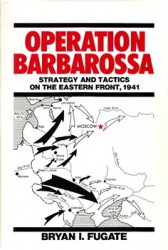Recent archaeological excavations in the area between the Roman Forum and the Arch of Titus have revealed the foundations of a series of grand aristocratic houses dating from the middle of the first century BC. There is some continuing dispute about the ownership of each, but one study identifies those of Cicero, his brother Quintus, and his arch-rival Clodius (see below). The lavish decoration of the homes and the large slave quarters found in one (room for possibly fifty domestic slaves) have suggested not only the opulence of the elite in the later republic but the ways in which their homes were used as a propaganda display in support of their political ambitions.
The finds support the view that the 60s and 50s were years of increased aristocratic competition for election to the magistracies. The consulships and praetor-ships (elected by the conservative comitia centuriata) remained the goal of every ambitious man but they had to be reached through the lower magistracies (elected by the concilium). At each step of a political career further advancement became more difficult. Under half of those who became quaestors could become praetors
And only two of each set of six or eight praetors a consul. Men standing for the lower magistracies had also to sell themselves to an electorate that, after the Social War, was much larger and more volatile. The disruptions of the Social War and the civil wars of Sulla had led to Rome being packed with refugees from the upheavals. The contenders for the magistracies could, as they had always done, play on the antiquity and achievements of their family and their own military record. However, effective oratory now had a greater impact, one reason why a ‘new man’ such as Cicero had been able to gain a consulship. The crowds also responded to those who would spend on their behalf. This is why the post of aedile, whose responsibilities included the administration of games, became so sought after. Spectacular public entertainment was always popular. Behind the scenes the direct bribery of voters seems to have been on the increase and was a common subject of private prosecutions between rivals. (See further Fergus Millar, The Crowd in Rome in the Late Republic, Ann Arbor, 2002.)
There were no political parties or platforms as such in Rome but there were certain policies that were bound to appeal to the mass of citizens. They warmed to military victory and expected wars to be fought competently. (It had been popular initiatives that had led to the appointment of Marius to his commands in the military crisis at the end of the second century.) They valued their own rights and the defence of these by the tribunes and were correspondingly suspicious of the powers of the senate. They were always ready to respond to those who would offer land (especially for retired soldiers) or, in the city, a more effective and cheaper supply of corn. As competition for the magistracies increased there was every temptation for candidates to appeal to these popular concerns. Those who did so were dubbed by their opponents populares, ‘those pandering to the people’. Those, on the other hand, who wished to uphold traditional senatorial authority against the demands of the assemblies, called themselves opti-mates, ‘the best men’
Traditionally a consulship had been followed by little more than a respected position in the senate for life but from the time of Sulla it had become more common for the consuls to stay at home and be sent overseas after their term of office. Such overseas commands could be granted by either the senate or the assemblies and, most significant of all, they could be prolonged. In the 70s Metellus Pius had spent nine consecutive years in Spain and Lucius Lucullus eight in the east. These special commands presented an extended opportunity to achieve military glory and wealth as well as allowing the commander to build up a dependent and therefore loyal army. They thus offered a potential threat to the republic. As Pompey had shown in Asia, once abroad a commander operated largely beyond the control of the senate. It was only when he returned that the senate could refuse to ratify any decisions he had made overseas or hinder the settlement of his troops. Such obstruction resolved nothing. It was true that Pompey, faced with opposition from the senate on his return, had not overthrown the state, but somehow his business had to be settled and this is why he now turned to a newly elected consul, Julius Caesar, for help.




 World History
World History









